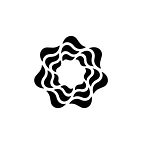Business models that thrived during lockdown
The COVID-19 pandemic has shaken the world from both the demand and supply sides, hammering industries from manufacturing to advertising to hospitality. While many small businesses have been forced to shut down or sell assets, some have managed to make the most of this crisis.
EdTech start-up Abwaab is one such company that has seen its business flourish during the lockdown. The Amman-based online learning platform allows secondary school students in the region to learn at their own pace and get ahead with tutors through video lessons, visualized learning journeys, and performance-tracking features.
As schools closed to prevent the spread of COVID-19, the government contracted the company to design and offer virtual lessons for secondary students online and through broadcast on national television. As a result, the ten-month-old company is two years ahead of schedule in terms of awareness about its product.
Exponential growth
“The COVID-19 crisis catalyzed growth in a big way, bringing us one step closer to achieving our mission. By partnering with the Jordanian Ministry of Education on the ‘Darsak’ distance-learning initiative, we as a team really pushed ourselves to get more done, faster,” said Hamdi Tabbaa, Co-Founder of Abwaab.
Other online education platforms providing content for the government’s Darsak initiative include Jordan’s Edraak and Jo Academy.
“We played an instrumental role in the Darsak initiative from both the product and content fronts, and at the same time were able to ramp up our own content offering and develop our tech features — a feature we are incredibly proud of,” said Tabbaa.
Abwaab was founded in September 2019 by Tabbaa and Hussein Alsarabi to change the way students learn outside the classroom by making high-quality education more accessible through technology. The platform offers the national Jordanian curriculum for grades seven to 12, covering subjects like mathematics, biology, chemistry, physics, Arabic, and English.
The company did not expect things to pick up so quickly, but with the closure of schools, the Jordanian government turned to e-learning solutions and tasked Abwaab with producing content covering seven subjects for grades nine to 12 within a week. To do that, the company ramped up operations, tripled the size of its team and worked round the clock.
Increased exposure
Abwaab is not charging the government for the service it is providing. However, it has gained from the exposure that it would otherwise have taken the company years to achieve. Now every household with a school child knows Abwaab, according to Tabbaa.
The company typically works on a premium subscription model, charging 140 JOD per year for all subjects. The idea behind the current free service is to build awareness of its products and create a following so it can return to its paid model once the virus pandemic is contained.
“Since the launch of our platform in February 2020, we’ve reached more than 1.5 million students across all 12 governorates in Jordan and have seen a 5,000% jump in new users. This is only the beginning and we are very optimistic about the future of edtech and Abwaab,” said Tabbaa.
“Each member of the team — from developers to animators — witnessed firsthand how impactful our work can be. So the urge to keep the momentum going is greater than ever.”
Abwaab raised 2.4 million USD in a funding round that closed in January 2020 from investors led by Jordan’s Adam Tech Ventures. The company plans to invest the money in developing content and harnessing artificial intelligence.
The start-up, which currently operates only in Jordan, wants to grow its user base to 500,000 students in the country with a potential revenue of 100 million USD from its subscription base. It also wants to expand to Saudi Arabia, where it is targeting subscriptions from four million students, and in Egypt, the Arab world’s most populous country, where it wants to attract eight million subscribers.
Re-channeling resources
Delivery apps have skyrocketed during the pandemic all over the world. In Jordan, the government launched a new application called mouneh.jo for shopping and delivery services. The app connects citizens with transport vehicles, such as ride-hailing apps or yellow taxis, all stores and supermarkets inside Amman and other governorates.
Apps already in the market catering to food and grocery delivery, including Careem, Basket, and Eat Delivery have seen a lot of activity due to the challenges imposed by the pandemic.
In fact, banks are also upping their app functionalities to include everything from bill payments, money transfers, e-wallets and now even cash delivery. Bank Al Etihad has partnered with Careem to deliver cash to its customers wherever they are.
One example of a Jordanian company that has unexpectedly benefited from the coronavirus lockdown is Blink Ultimate Delivery.
The Amman-based online ordering and delivery platform enables merchants to outsource their deliveries, connecting them with freelance drivers who are ready to deliver their goods, thereby helping them sell more online.
With 65,000 deliveries since 2017, Blink Ultimate Delivery already prides itself on steady growth but now is hiring more freelance drivers on the back of increased demand.
During the pandemic, it has gained visibility by company rechanneling its entire fleet to help the Ministry of Health deliver medicine, taking on thousands of medical deliveries, including 8,000 during the lockdown, to deliver prescription drugs to people at their homes.
Like Abwaab, the company decided to offer this service free of charge. According to Bader Hosban, CEO of Blink Ultimate Delivery, the initiative was undertaken “to help Jordan navigate the crisis with minimal losses and help people in need, who depend on public health centers for their meds.”
Start-ups with innovative, outside-the-box business models that offer solutions to new problems, or scale-up in response to evolving demand, can ride the crisis wave and even turn it into a golden opportunity.
